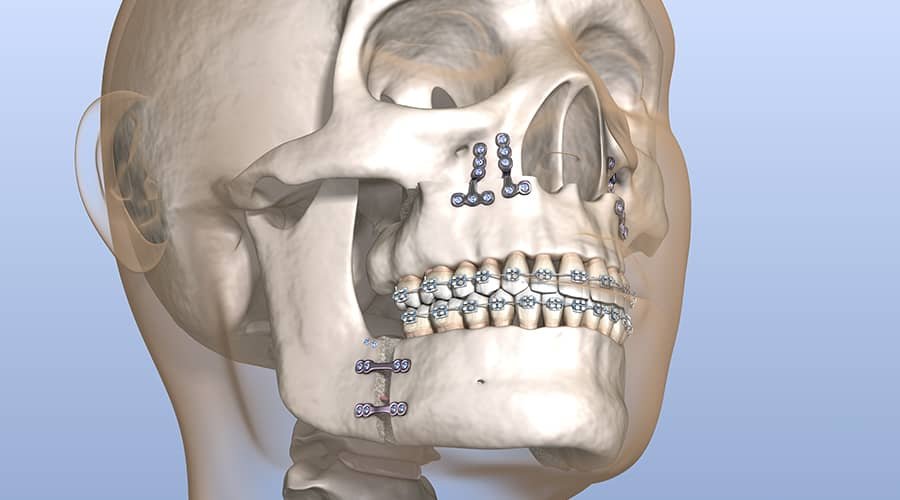After jaw surgery, you might wonder, “How long after jaw surgery can you talk?” Most individuals can start speaking within a few days post-surgery. However, it’s crucial to follow your surgeon’s guidelines for optimal healing. Engage in gentle speech and avoid excessive strain on your jaw during the initial recovery phase. Patience and proper care are key in regaining your speaking abilities comfortably after jaw surgery.
Exploring “How Long After Jaw Surgery Can You Talk?”
Undergoing jaw surgery can be a significant decision that comes with a variety of considerations and preparations. Among the many questions that may arise before the procedure, one common concern is how soon after jaw surgery a person can resume talking comfortably. In this article, we will delve into the details of post-jaw surgery speech recovery to provide you with a comprehensive guide on what to expect and how to navigate this aspect of your healing journey.
Understanding Jaw Surgery and Its Impact on Speech
Jaw surgery, also known as orthognathic surgery, is a procedure that aims to correct various conditions related to the alignment or structure of the jaw. Whether you are undergoing surgery to address issues like a misaligned bite, facial asymmetry, or other dental and skeletal discrepancies, it is essential to understand the potential impact this procedure can have on your speech.
Given the intricate nature of the jaw’s role in speech production, undergoing jaw surgery can temporarily affect your ability to speak clearly and comfortably. This is because the surgery involves repositioning the jaw bones, which may lead to swelling, stiffness, and changes in the oral cavity that can affect your articulation and pronunciation.
The Initial Post-Surgery Period: Days 1-7
During the initial days following jaw surgery, it is common to experience swelling, pain, and limited mobility in the jaw area. These factors can make it challenging to speak clearly and may require you to adjust your communication style temporarily. It is important to follow your surgeon’s post-operative instructions diligently to promote healing and minimize discomfort.
Typically, in the first week after jaw surgery, your ability to talk may be significantly compromised due to factors like swelling and muscle stiffness. You may find that your speech is slurred or difficult to understand, and you may need to speak slowly and enunciate carefully to communicate effectively.
Tips for Communicating During the Initial Recovery Period:
- Use simple and concise sentences.
- Communicate non-verbally when possible, such as through gestures or writing.
- Avoid straining your jaw by attempting to speak loudly or for extended periods.
- Prioritize rest and allow your body time to recover.
Speech Rehabilitation and Recovery: Weeks 2-6
As you progress into the second to sixth weeks post-surgery, you may notice improvement in your speech as swelling decreases, and your jaw mobility improves. This period is crucial for speech rehabilitation, as you start to regain your ability to articulate words more clearly and comfortably.
Your healthcare provider or speech therapist may provide you with exercises to help strengthen your jaw muscles and improve your speech clarity. It is essential to follow their guidance and remain consistent with your rehabilitation routine to enhance your speech recovery outcomes.
Speech Rehabilitation Strategies:
- Practice pronouncing words slowly and accurately.
- Engage in jaw exercises recommended by your healthcare provider.
- Read aloud to improve your articulation and speech fluency.
- Attend speech therapy sessions if prescribed by your healthcare team.
Returning to Normal Speech: Weeks 6 and Beyond
By the sixth week post-jaw surgery, many individuals experience a significant improvement in their speech and can communicate more naturally and confidently. However, the exact timeline for returning to normal speech may vary based on individual factors such as the extent of the surgery, your overall health, and adherence to post-operative care instructions.
It is essential to listen to your body and communicate any concerns or challenges you encounter during your speech recovery journey with your healthcare team. They can provide personalized guidance and support to help you achieve optimal speech outcomes and ensure a smooth transition back to your regular communication abilities.
Final Thoughts
Recovering your speech after jaw surgery is a gradual process that requires patience, consistency, and a proactive approach to rehabilitation. By understanding the impact of jaw surgery on speech and following the appropriate steps outlined by your healthcare team, you can navigate this aspect of your recovery journey with confidence and resilience.
Remember, every individual heals at their own pace, so it is essential to be patient with yourself and celebrate the small victories along the way. Your ability to communicate effectively will improve over time, leading to a successful recovery and restored speech function post-jaw surgery.
Are you or someone you know preparing for jaw surgery? Share this article to help others understand what to expect in terms of speech recovery after the procedure.
Stay tuned for more insightful articles and tips on navigating the challenges of jaw surgery recovery and maximizing your overall well-being.
Life After JAW SURGERY! | Treatment Minute Talk!
Frequently Asked Questions
How soon can I start talking after jaw surgery?
It is recommended to wait until the effects of the anesthesia wear off before attempting to speak, usually a few hours after the surgery. Initially, talking may be difficult due to swelling and discomfort, but slowly attempting to speak softly can help you get used to it.
Will talking too soon after jaw surgery affect my recovery?
Speaking too soon after jaw surgery can put unnecessary strain on your jaw, potentially leading to increased swelling and discomfort. It is important to follow the post-operative instructions provided by your surgeon to ensure proper healing.
How long should I wait before engaging in long conversations after jaw surgery?
It is recommended to limit talking for the first few days after jaw surgery to allow your jaw to rest and heal. As you start feeling more comfortable, gradually increase the duration of your conversations. Listen to your body and avoid overexerting your jaw muscles.
Final Thoughts
After jaw surgery, speaking may be challenging initially due to swelling and discomfort. It’s crucial to follow the post-operative instructions for a successful recovery. Typically, patients can start speaking a day or two after surgery, but full speech ability may take a few weeks to return. It’s essential to be patient and give your jaw time to heal properly before pushing yourself to talk extensively. Remember, how long after jaw surgery can you talk ultimately depends on your individual healing process and the extent of the surgery.






+ There are no comments
Add yours